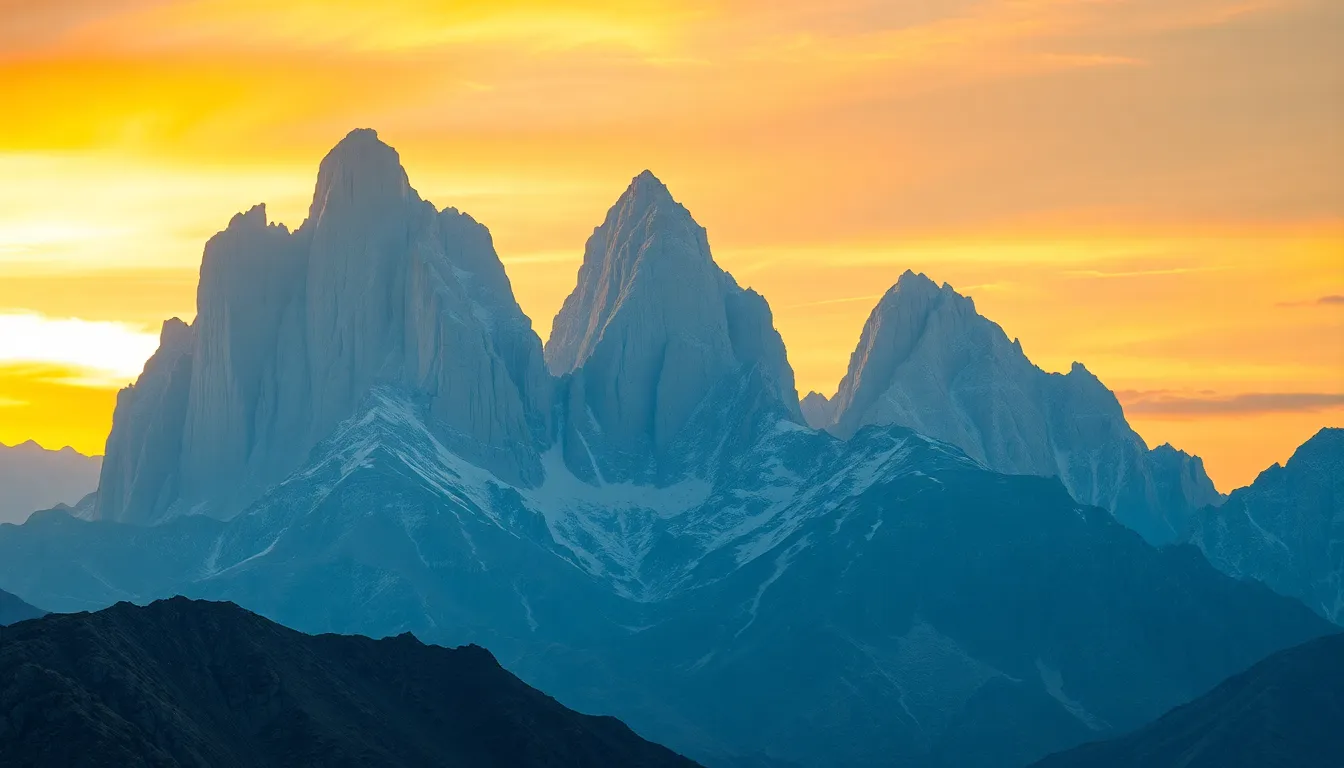Mystical Mountains: Exploring the Myths That Shaped Civilizations
I. Introduction
Mystical mountains have long captivated the human imagination, serving as both physical landmarks and symbols steeped in cultural significance. Defined as mountain ranges or peaks that hold spiritual or mythical importance, these natural formations have been revered across various civilizations. The role of mountains in shaping cultural narratives and myths is profound, influencing religions, art, and social structures. This article delves into the myths surrounding mountains and their impact on civilizations throughout history.
II. The Role of Mountains in Mythology
Mountains often occupy a central place in mythology, serving as sacred spaces that connect the earth with the divine. Across cultures, mountains are viewed as:
- Sacred Spaces: Many cultures consider mountains to be the dwelling places of gods or spirits.
- Symbols of Power: Their towering presence often symbolizes strength and stability.
- Places of Transformation: Mountains are seen as sites of enlightenment and personal growth.
Common themes in mountain myths include the struggle between good and evil, the journey of heroes, and the quest for knowledge. The symbolism of mountains resonates deeply within human consciousness, representing the challenges and aspirations of life.
III. The Himalayas: The Abode of the Gods
The Himalayas, often referred to as the “abode of the gods,” hold a special place in Hinduism and Buddhism. Myths surrounding these majestic peaks have shaped spiritual practices and beliefs for centuries.
One of the most significant mountains in this range is Mount Kailash, revered as the sacred home of Lord Shiva. Pilgrimages to this mountain are believed to cleanse the soul and grant spiritual enlightenment. The legends surrounding divine beings such as the Yeti add to the mystical aura of the Himalayas, embodying the mysteries that lie within these high altitudes.
IV. The Andes: Home to Incan Legends
The Andes mountains were central to the Incan civilization, serving both as a source of resources and a sacred landscape. The Incas viewed the mountains as deities, with myths surrounding gods like Illimani—the protector of the Andean people.
Festivals and rituals connected to these peaks were essential for agricultural success and community cohesion. The worship of mountains continues in Andean culture, underscoring their significance in both historical and contemporary contexts.
V. The Alps: A Tapestry of European Folklore
The Alps, stretching across several European countries, are rich in folklore that reflects the diverse cultures of the region. Myths and legends are woven into the fabric of Alpine life, featuring prominent figures such as the White Lady—a ghostly figure said to protect the mountains and its inhabitants.
These tales have inspired countless works of art and literature, reinforcing the Alps’ position as a cultural touchstone in Europe. The impact of these myths extends beyond storytelling, influencing mountain tourism and conservation efforts.
VI. Mount Olympus: The Seat of the Greek Gods
In ancient Greece, Mount Olympus was considered the dwelling place of the Olympian gods. Its historical significance extends beyond geography; it was the cultural heart of Greek mythology.
Myths of the gods, such as Zeus and Hera, and their interactions with humanity shaped moral lessons and social norms. The legacy of Olympus in modern Western thought continues to influence literature, art, and philosophy, making it a symbol of divine authority and human aspiration.
VII. The Rocky Mountains: Native American Spirituality
Indigenous peoples of North America have rich spiritual connections to the Rocky Mountains. Each tribe has its own myths and stories that articulate the significance of these majestic peaks.
For many Native American tribes, specific mountains hold deep spiritual meaning, serving as sites for ceremonies and rituals. The preservation of oral traditions is vital, as these stories reflect the values, beliefs, and histories of Indigenous cultures, remaining relevant in contemporary society.
VIII. The Impact of Mountain Myths on Civilization Development
Mountain myths have significantly influenced the development of civilizations in various ways:
- Settlement Patterns: Myths often dictated where communities settled, with sacred mountains attracting populations seeking spiritual connection.
- Architecture: Structures were often built in alignment with mountain features, enhancing the mystical experience.
- Natural Barriers: Mountains served as natural fortifications, affecting historical conflicts and migrations.
The interplay between mythology and the environment has shaped cultural identities and historical trajectories.
IX. Contemporary Interpretations of Mountain Myths
In modern times, ancient mountain myths are being reinterpreted in various ways. Contemporary cultures engage with these narratives through:
- Tourism: The commercialization of mountain myths can preserve local cultures but may also dilute their significance.
- Technology and Media: Films, books, and digital platforms have introduced these myths to wider audiences, creating new interpretations.
- Environmental Concerns: The relevance of mountain myths is emphasized in discussions surrounding conservation and climate change.
As societies evolve, so too do the stories we tell about the mountains that shape our world.
X. Conclusion
The significance of mountains in shaping myths and civilizations cannot be overstated. These towering giants have inspired countless stories, reflected societal values, and influenced cultural development throughout history. As we reflect on these ancient narratives, it becomes clear that their relevance persists in contemporary society, urging us to appreciate and preserve the natural landscapes that have long held a place in our collective consciousness.


